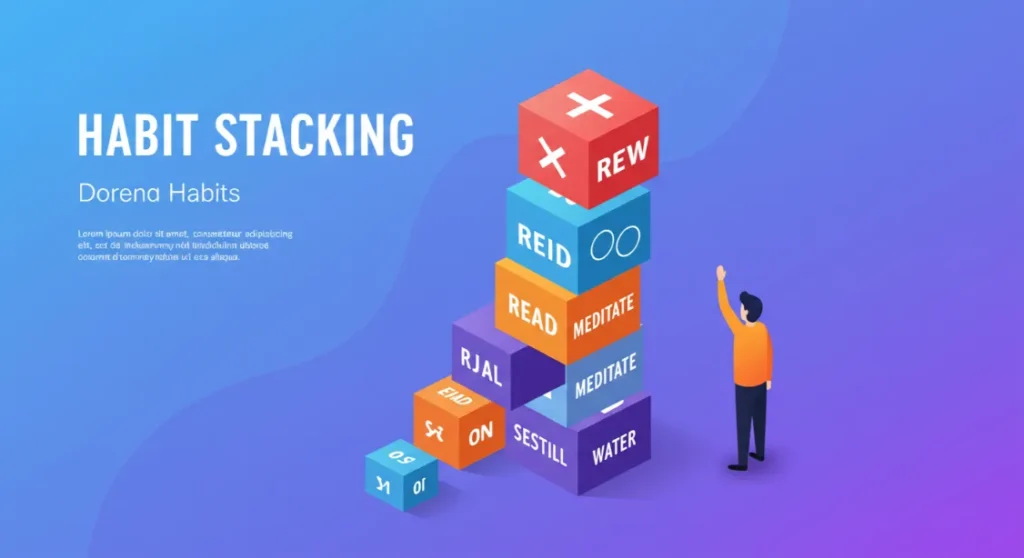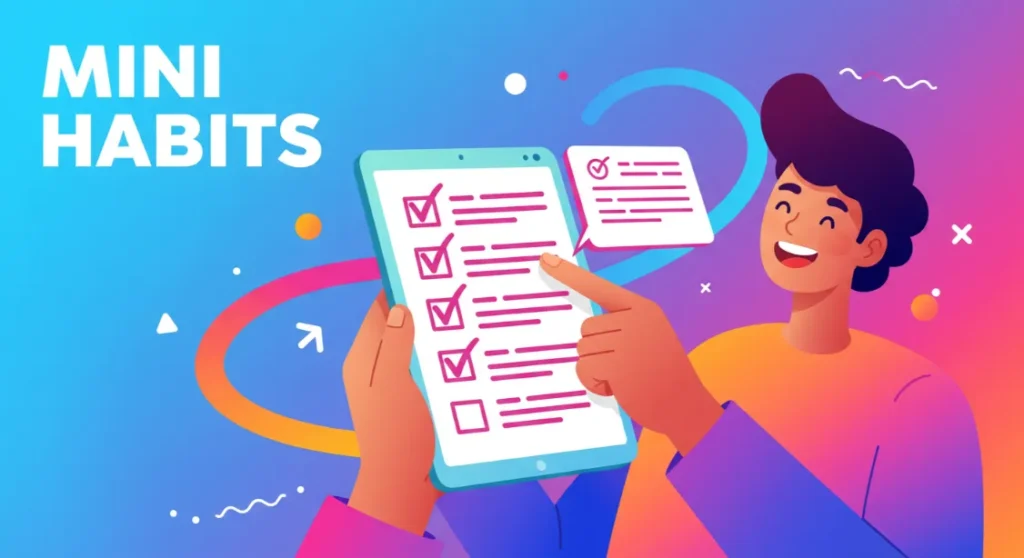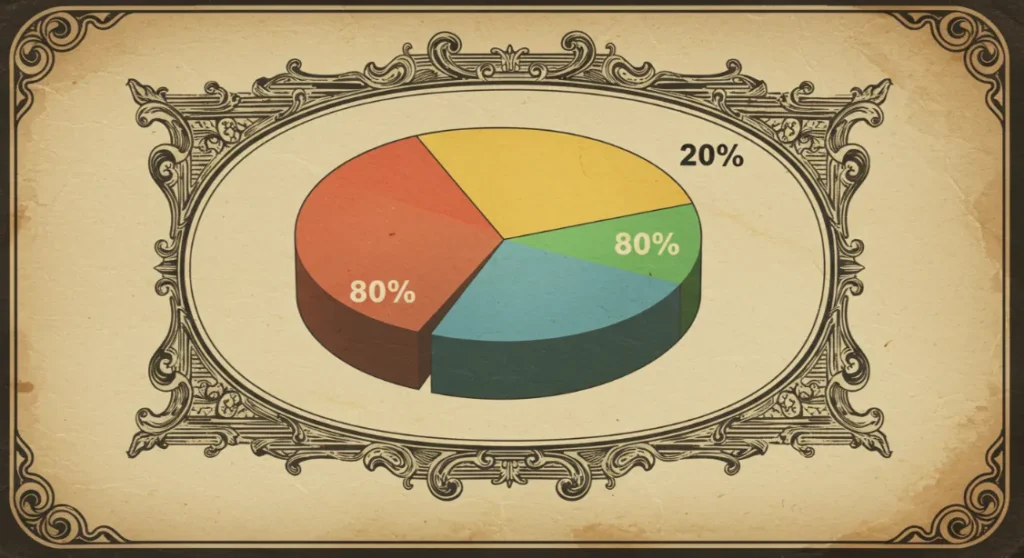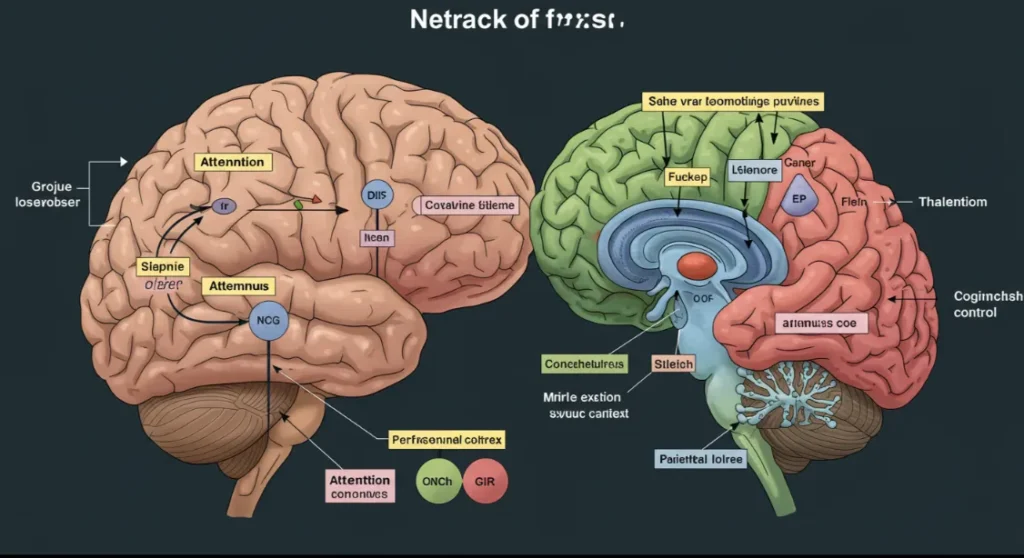Ever felt overwhelmed by ambitious goals that seem impossible to achieve? You’re not alone. What if I told you that the secret to lasting change isn’t about massive action but rather tiny, consistent steps? Mini habits—small, daily actions that require minimal motivation but create significant results over time—might be the game-changer you’ve been looking for.
In a world obsessed with grand gestures and overnight transformations, mini habits offer a refreshingly practical approach to personal development. By focusing on actions so small they seem almost trivial, you bypass the resistance that typically derails your progress.
Key Takeaways:
- Mini Habits Defined: Tiny, daily actions that are easy to do, like one push-up or one page read.
- Psychological Advantage: Low barriers reduce resistance, making action easier than larger goals.
- Neuroscience: Small, repeated actions strengthen brain pathways, making habits automatic.
- Consistency Focus: Aim for daily performance; missing a day is okay—prioritize consistency.
- Scaling Up: Gradually increase habit difficulty or add new ones once established.
- Success Stories: Small actions lead to significant transformations, showcasing the power of consistency.
What Are Mini Habits?
Mini habits are incredibly small positive behaviors you force yourself to do every day. They’re “too small to fail” actions that require minimal willpower to complete. For example:
- One push-up per day
- Reading one page of a book
- Writing one sentence
- Drinking one glass of water
- Meditating for one minute
The power of mini habits lies in their simplicity. When you set the bar incredibly low, you eliminate the psychological resistance that often accompanies larger goals. This approach aligns perfectly with the science of goal setting, which shows that breaking down objectives into manageable pieces significantly increases your chances of success.
The Science Behind Mini Habits
Mini habits work because they align with how our brains actually function. When you attempt massive change, your brain perceives it as a threat, triggering resistance. Mini habits fly under your brain’s threat radar.
The Neuroscience of Habit Formation
When you perform any action repeatedly, your brain creates neural pathways that make the behavior increasingly automatic. This process, called myelination, strengthens these pathways over time, making habits easier to maintain. The neuroscience of focus explains why starting small actually leads to bigger results—it works with your brain’s natural functioning rather than against it.
Willpower Conservation
Research shows that willpower is a limited resource that depletes throughout the day. Mini habits require minimal willpower, allowing you to conserve this precious resource for other important tasks. This is particularly valuable when you’re learning to manage work stress and need mental energy for challenging situations.
Why Mini Habits Work When Other Approaches Fail

Traditional approaches to habit formation often fail because they demand too much too soon. Mini habits succeed where others fail for several key reasons:
1. They Eliminate Resistance
When a task seems too small to fail, you remove the psychological barriers that typically prevent action. This makes it easier to overcome laziness and procrastination that often derail larger goals.
2. They Build Momentum

Starting is often the hardest part of any endeavor. Mini habits make starting effortless, creating momentum that frequently leads to doing more than the minimum requirement. This momentum helps you stay focused and productive throughout the day.
3. They Create Identity Shifts
Consistently performing even tiny actions shapes how you see yourself. After weeks of doing one push-up daily, you begin to identify as “someone who exercises,” making further fitness habits more natural. This identity shift is crucial for building confidence and sustaining long-term change.
How to Implement Mini Habits Successfully
Creating successful mini habits requires a strategic approach. Here’s how to get started:
Choose the Right Mini Habits
Select habits that align with your larger goals but are ridiculously small. If you want to become a writer, start with writing one sentence daily. If fitness is your goal, begin with a single push-up. The key is making the habit so small that it feels almost laughable.
Be Consistent, Not Perfect
Consistency trumps perfection when it comes to mini habits. Aim to perform your mini habits daily, but don’t beat yourself up if you miss a day. The benefits of journaling about your mini habit journey can help you track patterns and stay motivated even when you face setbacks.
Celebrate Small Wins
Acknowledge and celebrate completing your mini habits. This positive reinforcement strengthens the neural pathways associated with the behavior and boosts motivation. Learning to reward yourself appropriately can significantly enhance your mini habit success.
Scaling Up: From Mini to Mighty

While mini habits start small, they don’t have to stay that way. Once a mini habit becomes automatic, you can gradually scale up:
The Plus Rule

After completing your mini habit, give yourself permission to continue if you feel motivated. For example, after doing one push-up, you might feel inspired to do ten more. This “plus rule” allows for natural growth without creating pressure.
Strategic Expansion
Once a mini habit is firmly established (typically after 4-8 weeks), consider slightly increasing the baseline requirement. For instance, move from one push-up to two. This gradual progression maintains the low-resistance nature of mini habits while allowing for growth.
Habit Stacking
Habit stacking involves adding new mini habits to existing routines. After establishing your first mini habit, attach another small action to it, creating a chain of positive behaviors that support your larger goals.
Mini Habits for Different Life Areas

Mini habits can transform virtually any area of your life:
For Productivity
Write one sentence toward a project
Clear one item from your inbox
Plan tomorrow for just one minute
These small actions can help you get more done in less time and gradually build stronger productivity systems.
For Health and Fitness

Do one push-up
Drink one glass of water
Take a one-minute walk
Even these tiny health habits can contribute to better sleep and mental health over time.
For Mental Wellness

Practice one minute of meditation
Write one gratitude item
Take three deep breaths
Small mental wellness practices can significantly impact your ability to manage chronic stress and maintain emotional balance.
Common Obstacles and How to Overcome Them
Despite their simplicity, mini habits can still face challenges:
The “Too Small to Matter” Mindset
Many people dismiss mini habits as insignificant. Remember that consistency compounds—small actions performed daily lead to remarkable results over time. Understanding the science of stress can help you appreciate how these small interventions reduce the cognitive load that often prevents habit formation.
Forgetting Your Mini Habits
Use reminders, alarms, or habit tracking apps to remember your mini habits. Alternatively, link them to existing routines through habit stacking to improve consistency.
Motivation to Do More

Sometimes you’ll feel motivated to do more than your mini requirement, while other times you won’t. Both scenarios are perfectly acceptable. The beauty of mini habits is that they accommodate fluctuating motivation levels while ensuring consistent action.
Real-Life Success Stories

Mini habits have transformed countless lives:
A struggling writer who committed to writing just 50 words daily eventually completed a novel
An overweight individual who started with one push-up daily developed a comprehensive fitness routine
A chronically disorganized person who began by cleaning for just two minutes daily transformed their living space
These success stories demonstrate how visualization for goals combined with tiny consistent actions can lead to remarkable transformations.
Integrating Mini Habits with Other Productivity Systems
Mini habits work well alongside other productivity approaches:
Mini Habits and the Pomodoro Technique
Use the Pomodoro Technique to focus on one task for 25 minutes, but set a mini habit of working for just 5 minutes to get started. This combination overcomes initial resistance while providing structure for extended work.
Mini Habits and Time Blocking
Incorporate mini habits into your time-blocking schedule as “non-negotiable” activities. This ensures you take control of your day while maintaining the low-pressure nature of mini habits.
Conclusion: The Transformative Power of Tiny Actions

Mini habits may seem inconsequential at first glance, but their cumulative impact is profound. By embracing the philosophy of starting ridiculously small, you set yourself up for sustainable growth and lasting change.
Remember, transformation rarely happens overnight. It’s the result of consistent, small actions performed day after day. As you implement mini habits in your life, you’ll likely discover that these tiny behaviors are the gateway to the bigger changes you’ve been seeking all along.
Start with just one mini habit today. Make it so small it seems almost pointless. Then watch as this tiny seed grows into something remarkable over time.
References:
- https://www.betterhealth.vic.gov.au/health/healthyliving/work-related-stress
- https://positivepsychology.com/workplace-stress-management/
- https://www.healthline.com/health/work-stress
- https://www.verywellmind.com/how-to-deal-with-stress-at-work-3145273
- https://www.helpguide.org/mental-health/stress/stress-management